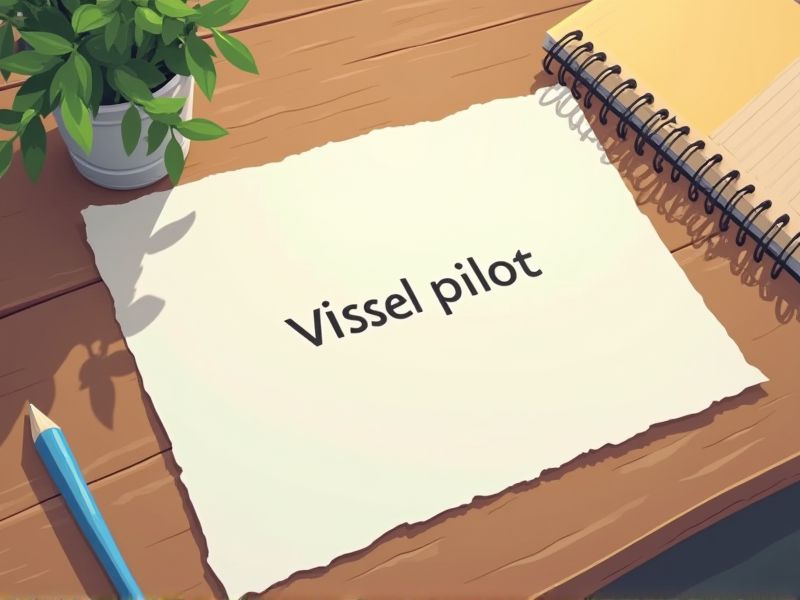
Vessel pilots play a critical role in navigating ships safely through challenging waters, which necessitates specific certifications to ensure competency and expertise. These certifications validate their knowledge in maritime navigation, safety protocols, and local waterway regulations. As maritime accidents can result in significant environmental and economic impacts, possessing these credentials acts as a risk mitigation tool. Key certifications required for vessel pilots include those highlighting proficiency in these crucial areas.
Vessel Pilot License
Possessing a Vessel Pilot License ensures that a pilot has met rigorous standards of training and competency, directly affecting navigational safety. Without this license, pilots would lack formal validation of their ability to guide vessels through challenging waterway conditions. The license also provides legal authority and recognition, which result in compliance with maritime regulations. A licensed pilot brings trust and assurance to ship operators, influencing smoother port operations and reducing the risk of accidents.
Certificate of Competency (Pilotage)
The Certificate of Competency (Pilotage) ensures a vessel pilot possesses the necessary skills and knowledge to navigate specific waters safely. Without this certification, pilots risk errors that could lead to navigational accidents or environmental damage. Regulatory bodies mandate this certificate to standardize competency levels across pilots. It also builds trust between shipping companies and pilots by demonstrating adherence to established safety standards.
STCW Basic Safety Training Certificate
A vessel pilot requires the STCW Basic Safety Training Certificate to ensure a standardized level of safety and preparedness for emergencies on board. This certification provides essential knowledge and skills for handling fire prevention, firefighting, and personal survival techniques, which are crucial during marine operations. International maritime regulations mandate this certification to maintain safety and operational efficiency at sea. Without it, vessel pilots may compromise both personal and crew safety during routine and emergency situations.
GMDSS Operator Certificate
The Global Maritime Distress and Safety System (GMDSS) Operator Certificate is required for vessel pilots to ensure they can effectively manage communication during emergencies. Proficiency in GMDSS equips pilots to operate essential safety equipment, enhancing overall maritime safety. Certification signifies that the pilot is capable of handling distress alerts, which is critical in preventing accidents at sea. International regulations mandate such certification to standardize safety measures across global shipping lanes.
Advanced Bridge Resource Management Certification
Advanced Bridge Resource Management Certification ensures vessel pilots are equipped to handle complex navigational challenges by enhancing their decision-making skills. It reduces the risk of human error by promoting effective communication and teamwork among bridge crew members. Pilots can manage stress better during critical situations, leading to safer maritime operations. This certification aligns with international maritime standards, thus boosting operational efficiency and compliance.
Ship Handling and Maneuvering Course Certificate
The Ship Handling and Maneuvering Course Certificate equips vessel pilots with the necessary skills to safely navigate ships in complex maritime environments. Pilots with this certification are better prepared to handle emergency situations, reducing the risk of accidents and ensuring the safety of the vessel and crew. Shipping companies and port authorities often require this certificate to verify a pilot's competency, fostering trust in their operational capabilities. The certificate ensures standardized training across regions, promoting consistent safety and operational standards in the maritime industry.
Advanced Radar and Electronic Navigation Certification
Advanced Radar and Electronic Navigation Certification enhances a vessel pilot's ability to interpret complex radar and electronic data, leading to improved navigation accuracy. Obtaining this certification equips pilots with the skills to effectively manage challenging conditions such as low visibility or congested waters. The training ensures pilots are proficient in using modern navigational technologies, reducing the risk of maritime accidents. Vessel safety depends significantly on the pilot's expertise in using advanced navigation systems to prevent costly and dangerous incidents.
Maritime English Proficiency Certificate
Obtaining a Maritime English Proficiency Certificate ensures vessel pilots have the necessary language skills to communicate effectively with international crews. This proficiency reduces the risk of misunderstandings, which can lead to navigational errors and accidents. Regulations by the International Maritime Organization require standardized maritime communication to enhance safety and operational efficiency at sea. The certificate verifies the pilot's ability to engage in clear and concise exchanges during critical operations like berthing and maneuvering.
First Aid and Medical Response Certification
Vessel pilots often navigate challenging and isolated environments, where quick medical interventions can be crucial in emergencies, making first aid certification essential for immediate response. Certification enhances the pilot's ability to stabilize injured crew members or passengers before professional medical help arrives, potentially saving lives. The maritime environment presents unique health risks such as falls, hypothermia, and injuries from equipment, necessitating specialized training. Regulatory bodies and shipping companies often mandate this certification to ensure safety standards are maintained on board.
Cargo Operations and Dangerous Goods Handling Certificate
Without proper training in cargo operations and dangerous goods handling, a vessel pilot increases the risk of accidents during loading and unloading, potentially jeopardizing safety. Knowledge obtained from the certification enhances a pilot's ability to manage and mitigate risks associated with hazardous materials. Regulatory bodies often mandate certification to ensure compliance with international safety standards. The certification equips pilots with crucial problem-solving skills necessary for effectively dealing with emergencies involving dangerous cargo.
Summary
When you ensure that vessel pilots obtain certifications, you can expect enhanced navigational skills. This leads to improved safety and reduces the risk of maritime accidents. The certifications also equip pilots with up-to-date knowledge on regulations and technologies. Consequently, you benefit from smoother and more efficient port operations.
